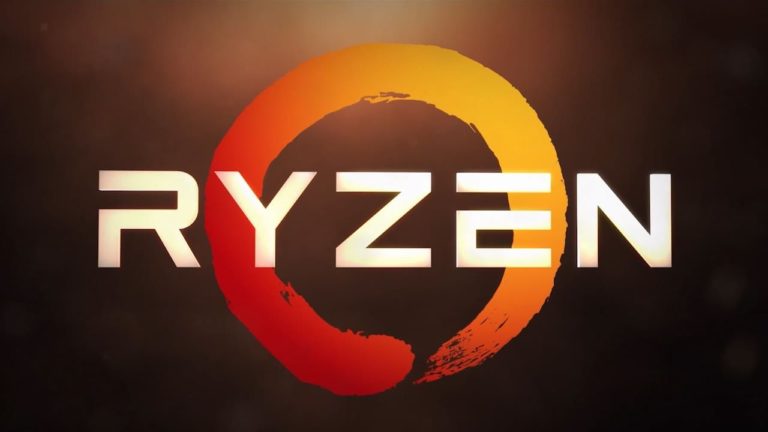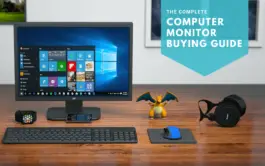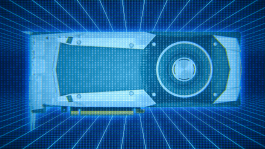Ryzen is out! The usual suspects in the tech YouTube space have released their benchmarks, and the tech blogs have poured over the numbers in droves. But there has been some controversy over the performance of the new AMD flagship, and the internet is divisively split over it. But the question remains: Should you build a Ryzen-based PC? Is Ryzen good for content creators? Well, the short answer is “yes.” But there’s some caveats, of course.
Contents
What is Ryzen?
Ryzen is the latest CPU release from AMD, planted upon their new Zen architecture. Zen (and Ryzen) is the first major iteration of AMD’s architecture and performance, (hopefully) landing the company on at least even footing to compete with Intel for the first time in quite a while.
The lineup is very similar to Intel CPUs, in that there are three tiers, the R7, R5, and R3. Highly creative and unique when compared to Intel’s i7, i5, and i3, I know. Just like Intel’s, the higher the number, the higher the tier in performance and cost.
At this point, only the R7 chips have been announced and released, leaving us with the 1800X at the top of the heap, followed by the 1700X and the Ryzen 1700. One can only assume that as these chips get replaced by a second generation, they too will follow Intel’s iteration scheme and get new names like 2800X, 2700X, and 2700.
Not much differentiates one CPU from the other, aside from different base and turbo speeds out of the box, and the power draw, with the 1800X and 1700X running at a fairly efficient and cool 95 watts TDP, or thermal design power (what’s TDP? Click here!) with the 1700 at a crazy low 65w TDP.
| MODEL | AMD Ryzen™ 7 1800X | AMD Ryzen™ 7 1700X | AMD Ryzen™ 7 1700 |
|---|---|---|---|
| TOTAL L1 CACHE | 768 KB | 768 KB | 768 KB |
| TOTAL L2 CACHE | 4 MB | 4 MB | 4 MB |
| TOTAL L3 CACHE | 16 MB | 16 MB | 16 MB |
| UNLOCKED | Yes | Yes | Yes |
| THERMAL SOLUTION | Wraith Spire (LED) | ||
| TDP | 95 W | 95 W | 65 W |
| Performance | |||
| # OF CPU CORES | 8 | 8 | 8 |
| # OF THREADS | 16 | 16 | 16 |
| BASE CLOCK SPEED | 3.6 GHz | 3.4 GHz | 3 GHz |
| MAX TURBO CORE SPEED | 4 GHz | 3.8 GHz | 3.7 GHz |
| Memory | |||
| MEMORY TYPE | DDR4 | DDR4 | DDR4 |
| MEMORY CHANNELS | 2 | 2 | 2 |
| Key Features | |||
| AES SUPPORT | Yes | Yes | Yes |
| AVX | AVX2 | AVX2 | AVX2 |
| XFR | Yes | Yes | Yes |
| AMD SENSEMI TECHNOLOGY | Yes | Yes | Yes |
| FMA | FMA3 | FMA3 | FMA3 |
| AMD VIRTUALIZATION | Yes | Yes | Yes |
Is Ryzen any good?
As a content creator, the overwhelming answer to this is, yes. Ryzen is an 8-core, 16-thread beast of a CPU. Because of the amount of logical cores on the CPU, the Ryzen R7 series is a multitasking monster. Basically, this means that for anyone who is doing content creation–video editing, video encoding, code-crunching, audio processing, etc etc–Ryzen is extremely efficient. With the 1800X coming in at half the cost of the i7 6900K and meeting or exceeding the performance of the 6900K, the value cannot be beat.
The problem (if you could call it that) lies in the typical demand of the desktop PC audience/market. While the overall desktop PC market is down, the gaming desktop PC market is steadily climbing. Despite what your console gaming friends keep saying, PC gaming is NOT dead. PC Master Race is alive and well.
The breakdown
Before we get into Ryzen for content creators, however, we do need to discuss Ryzen for gaming. Basically, there are a few different performance factors for Ryzen that explain why there may be performance issues in certain tasks as well as strengths in others (and the future potential), so let’s get into those now.
However, this will not be a benchmark-laden review, as the numbers have already been covered many times over elsewhere. Instead, this will be a more broad overview, approaching the subject of Ryzen performance in a manner that I think will be a bit more friendly to non-PC nerds. I’ll also link to some good videos out there by the already established tech YouTubers that do a good job of explaining this in more detail, including those benchmarks in gaming, real world production, and synthetic testing.
Ryzen performance factors
What is single-core IPC?
IPC is Instructions Per Cycle. Basically, this refers to how many instructions can be crunched on each iteration of the CPU’s clock cycle. Meaning, per tick on the clock cycle, how many things it can figure out how to do. The higher the amount of IPCs, the more math that can be done within a fixed period of time (the fixed timeframe being the time it takes for the clock cycle to occur). So the higher this is, the higher the instructions that can be done overall, which leads into…
What is single core clock speed?
If the IPC is the timeframe in which a finite number of instructions can be done, the overall clock speed is how many cycles can be crammed into, say, a second. Or whatever. Basically, how fast can a cycle be completed.
With a higher clock speed, more cycles can occur, therefore exponentially cranking up the number of instructions that can be done in a timeframe.
The Skylake/Kaby Lake processors from Intel have a higher single core clock speed than the 1800X, as well as higher than the Intel Broadwell-E chips, such as the 6900K and i7-6950X. These two chips, however, are multi-core behemoths clocking in at $1050 and $1650 or so respectively. But the fact remains, that the i7-7700K at $350 will beat these two chips, as well as the Ryzen chips, in gaming because of the single core clock speed benefits of Kaby Lake.
What is overclocking?
Overclocking (OC) is the process of cranking a CPU to a higher clock speed than what it ships at. Originally a highly difficult process not done by anyone but the craziest of the crazy, risking their precious chips by jacking up the voltage and various other settings to get the most performance out of a CPU.
These days, it’s almost painfully easy to overclock most processors, and many motherboards have a one-touch OC function, or at least OC from software within Windows, instead of purely within the BIOS (the settings for the motherboard before Windows even boots).
Modern chips will overclock easily, and run very stable with even basic cooling situations, as overclocking can definitely increase the thermals on a processor. You shouldn’t OC with a stock cooler/fan. That said, I’ve been running my i5-2500K with a one-touch OC on a stock cooler/fan for YEARS now, and it’s stable as can be. Yeah, I need to replace that sooner rather than later.
Windows microarchitecture optimization and game optimizations
The last factor is regarding how the software (Windows, games, video editors, etc) is coded to recognize the hardware. To be honest, Windows has only really been optimized for Intel chips over the past decade or so, and that’s because AMD just hasn’t been competitive. Game developers have been in the same boat, with their games not necessarily being AMD-friendly on the CPU side.
This isn’t to be confused with AMD’s video graphics solutions, as developers have been optimizing for both NVidia and AMD (formerly ATI) graphics cards for a long time. We’re speaking directly about the CPU architecture optimization here.
Even though we’ve seen quad-core and higher chips for the past decade, and these are now a very mainstream bare minimum, a lot of games really don’t use that many cores. Usually just one core, maybe two threads. More games are using multi-core chips to their full advantage, but it’s still few and far between, relatively speaking.
Ryzen for gaming
This is where the hype around the Ryzen launch, as well as AMD’s touted awesomeness, starts to get people all riled up. Before the Ryzen launch, AMD had stated that this was going to be amazing for gaming. They kept up with this message during the official launch event, with PCs set up running benchmarks where Ryzen was crushing the comparable Intel processors. The theory behind this was the single-core IPC in comparison to chips like the Kaby Lake 7700K, as well as the raw clock speed. Historically, the last generations of the AMD FX processors (the Bobcat and Bulldozer architectures, primarily) have suffered low IPCs when compared to the consumer ranges of Intel’s processors (Sandy Bridge, Ivy Bridge, Skylake, Kaby Lake, etc).
So, here’s where the rubber meets the road. When you take the lower single core performance due to less IPCs, you just don’t have the physical horsepower to compete with a single-core monster like a 7700K. When you combine that with the lack of optimization in Windows and games, and add on the lack of multi-core support, games (and other single-core apps) just have the deck stacked against them. This is why gaming has been such a divisive issue for the PC community around the Ryzen launch.
But that’s gaming. If you’re at this site, you’re most likely a content creator of some sort, and that’s what you’re interested in. So how does Ryzen stack up for content creators?
Ryzen for production and content creators
Thankfully, this is where things start getting much more exciting. Because many (if not most) production apps can make use of multi-core, multi-threaded processors, we’re primed to get the most performance out of any of the Ryzen chips that we can, in the current state of things.
Many content creators and tech YouTubers began testing Ryzen as a video editing platform early on with some pretty great results right out of the gate.
Ryzen is a multi-core production beast
Where Ryzen lacks in single-core performance, it makes up for in spades in multi-core power. Because there are 8 cores and 16 threads, it can overcome the slower single-core performance by the sheer number of simultaneous processing power available. Remember the comparison to the $1000+ Broadwell-E chips above? Those are what we’re going up against in multi-core performance. The Kaby Lake stuff gets smashed here, because those are only 4-core 8-thread chips. The 6900K is an 8-core chip, and the 6950X is a monster at 10 cores. But those come in at more than two and three times the cost of an 1800X, respectively.
What this means is that with higher core/thread counts, it can multitask much more efficiently, therefore crunching more instructions per cumulative clock cycle than a lesser amount of cores. Even though a 7700K has a faster clock speed (especially when overclocking), the amount of “lanes” that are the 16 logical cores of a 6900K, 6950X, and 1700x give it a massive advantage if the software is capable of recognizing all of the logical cores.
Multi-core support in software
As we mentioned with games, software support for multicore chips is not always the same. Thankfully, production applications typically fall on the side of full support, because business relies on speed. Time is money.
This means that apps like Adobe Creative Cloud (Photoshop, Premiere Pro, After Effects, etc) support multicore processing. Faster renders because of more “lanes” for instructions to be jammed through. And that’s not even getting into GPU-accelerated support, such as using a GeForce 1080ti to boost After Effects render times, as an example.
Because we can take advantage of all these extra cores in Premiere Pro, that means that our playback, preview rendering, output rendering, effect rendering, etc, will all faster, smoother, and allow us to get more work done quicker.
Before Ryzen came out, the only high-end “production-friendly” options we had were the aforementioned 6900K and 6950X. Sure, you could pick up an older 4570K or 5930K in the Haswell architecture, but they’re much weaker in single core IPC than a more modern (and often cheaper) Skylake/Kaby Lake chip.
With Ryzen now a player in this game, they have stepped up to Intel as a major player in the production arenas, and give a considerable amount of power to those who may not have been able to afford it previously.
Future optimization for Ryzen
BIOS optimization for Ryzen
Here’s a fun fact. Motherboard manufacturers basically had only three weeks to get their hands on the Ryzen chips and get their motherboards/BIOS/EFI updates ready for the launch. That’s nowhere near enough time. As a consequence, not all RAM is supported/validated, not all RAM speeds are working, and there are some general performance optimizations that definitely need to be done. This is a big deal that should alleviate at least some of the current bottlenecks in all areas of performance.
Windows optimization for Ryzen
Windows basically lives with Intel. The current CPU kernel I believe is 100% friendly to Intel, and there are definitely some Windows issues that are complicating Ryzen compatibility. Getting these kinks worked out will improve overall performance greatly in Ryzen builds.
Game optimization for Ryzen
Both game developers and NVidia need to do some heavy optimization for the Ryzen architecture before things will be running at maximum potential. Several studios are already doing this, and I hope that NVidia will step up and get their graphics cards as friendly as possible with Ryzen, despite being a competitor to them directly in the GPU market.
Overclocking optimization for Ryzen
Right now, OC potential for Ryzen is a bit murky. AMD has said to not clock past certain voltages, and while that’s not entirely known as to why, I would imagine that a large portion of that are because of the issues with thermals. As in, CPU thermals can’t be read properly.
Yeah. The CPU thermal sensors aren’t sending data/correct data to the various software that can read these. If an accurate thermal isn’t available, you don’t know how much you’re physically pushing the chip, and therefore could cause major damage and kill it. Hopefully we’ll see a much better picture of the overclocking potential of Ryzen when this (and the BIOS optimizations) come about.
Ryzen for gaming. Again.
Sorry. Let’s come back to this for a bit, because it needs to be said. Ryzen is not a horrible gaming chip. At least at the 1800X level, I believe. Just because it can’t beat a 7700K in a majority of games, that doesn’t make it bad. Neither can a $1600+ 6950X. No one makes a big deal about that though.
If you’re 100% gaming, maybe skip this generation of Ryzen. If you’re gaming and livestreaming, give some heavy thought to a Ryzen chip, because of the aforementioned multi-core performance. If you’re doing any amount of production work, Ryzen may be your best friend.
If you’re a YouTube gamer or Twitch.tv gamer–someone who needs to play a game, livestream said game and donesn’t have an external capture method, and then edit videos for non-live videos, the Ryzen definitely has a lot of potential. So just because Reddit told you it sucks at gaming, don’t let it deter you.
Conclusion: Should you buy a Ryzen CPU as a content creator?
I don’t see why not. Even if you split your time between gaming and production, it’s hard to say it’s a poor choice. Especially at the price. Especially with the future potential of optimization in a multitude of areas.
Granted, there are some other things to take into consideration. A lack of Thunderbolt 3 availability at launch, or example (another topic for another time). But for a vast majority of users, that’s just not necessary at this time.
There will continue to be a lot of debate around the Ryzen platform. We haven’t even had a glimpse at the R5 or R3 chips, either. All I can say for now is that, personally, I’m excited for what Ryzen brings. I’m looking forward to the potential in the CPU market, even if it doesn’t involve me buying a Ryzen chip and just seeing what Intel does next.
What’s for sure is that it’s a good time to be a content creator, things just keep getting better and better.



![Best laptops for video editing [2020]](https://www.creatorbeat.com/wp-content/uploads/2020/08/Video-editing-laptops-blog-265x149.jpg)
![8 Best Thunderbolt 3 docks for home, travel, and budget [2022]](https://www.creatorbeat.com/wp-content/uploads/2020/06/Best-thunderbolt-3-docks-blog-265x149.jpg)





0 thoughts on “Should you build a Ryzen-based PC as a content creator?”